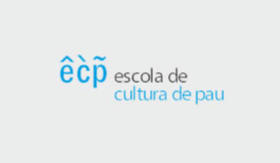
The Escola de Cultura de Pau at the Autonomous University of Barcelona was created in 1999 with the aim of organising academic activities and research and intervening in areas related to the culture of peace, the analysis, prevention and transformation of conflict, education for peace, disarmament and the promotion of human rights.
The school is financed mainly by the Government of Catalonia, through the Ministry of Governance and the Catalan Agency for Development Cooperation. It also receives support from the Spanish Agency for International Development Cooperation (AECID) and the Norwegian Ministry of Foreign Affairs. It is headed by Vicenç Fisas, who also holds the UNESCO Chair of Peace and Human Rights at the Autonomous University of Barcelona.
In accordance with its mission and these objectives, the School’s work focuses on the following areas of action:
- Intervention in conflicts, to facilitate dialogue between the sides.
- Analysis and daily follow-up of the international situation regarding armed conflicts, international tension, humanitarian and gender crises (Conflict and Peacebuilding Programme).
- Monitoring and analysing countries involved in peace processes or where negotiations have been formalised and those countries where negotiations are at an exploratory stage (Peace Process Programme).
- Monitoring and analysis of peace building in post-war contexts (Post-war Peacebuilding Programme).
- Monitoring of the international situation in terms of human rights and, especially, transitional justice mechanisms, corporate social responsibility and the impact of transnational corporations in conflict situations (Human Rights Programme).
LiberPress Association Award 2011
The Escola de Cultura de Pau received the 2011 LiberPress Association Award because it is the best example of a Catalan institution of international standing that defends humanitarian values and solidarity around the world and for its involvement at all levels in order to solve conflicts and achieve dialogue, concord, understanding, respect for human rights and, ultimately, as its name indicates, because it promotes the development, knowledge and establishment of peace, to achieve a better, more just and more egalitarian world.


